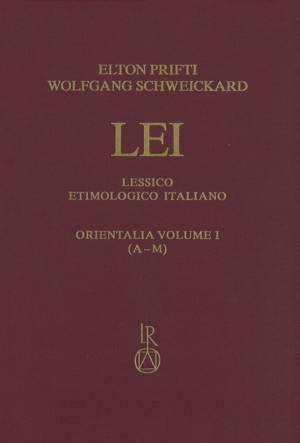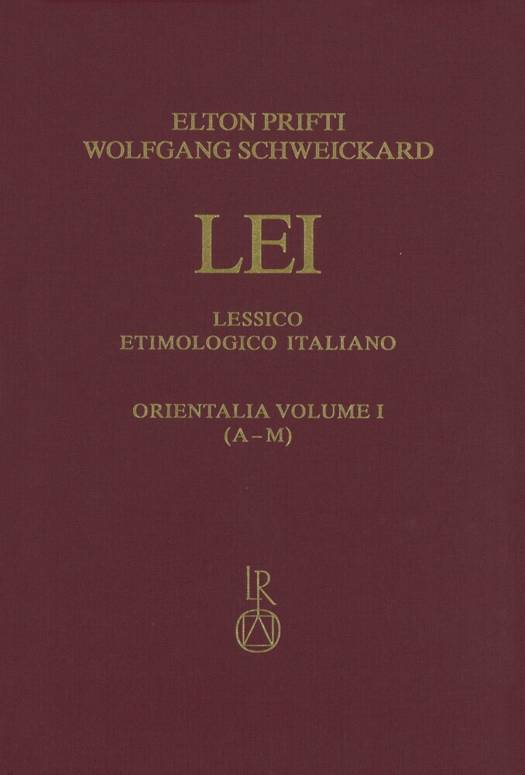
- Afhalen na 1 uur in een winkel met voorraad
- Gratis thuislevering in België vanaf € 30
- Ruim aanbod met 7 miljoen producten
- Afhalen na 1 uur in een winkel met voorraad
- Gratis thuislevering in België vanaf € 30
- Ruim aanbod met 7 miljoen producten
Zoeken
€ 1.159,45
+ 2318 punten
Omschrijving
Oriental languages have left their mark on the Italian vocabulary for centuries. Linguistic research into this sphere of language contact has a rich tradition, but there is still some work to be done. A comprehensive historical and etymological dictionary of Oriental elements in Italian remained an important desideratum for a long time. This gap will now be closed by the section of the Orientalia of the Lessico Etimologico Italiano (LEI). The Orientalia have the purpose of gathering and commenting the words of Oriental origin which have made their way into Italian historical sources. The chronological range of its documentation covers the period from the beginnings to around 1900. The Oriental languages taken into consideration are Arabic, Turkish and Persian. This approach corresponds to the concept of the Französisches Etymologisches Wörterbuch (FEW) which deals with these three languages in volume XIX (Orientalia), whereas other Oriental languages are included in volume XX. It is planned to publish a total of 16 fascicles (plus a comprehensive lexical index), which will constitute two volumes of the LEI. The bibliography, which contains nearly 9,000 entries, will be freely accessible at . In view of the large number of languages involved, the metalanguage of the Orientalia is English.
Specificaties
Betrokkenen
- Auteur(s):
- Uitgeverij:
Inhoud
- Aantal bladzijden:
- 790
- Taal:
- Duits
- Reeks:
- Reeksnummer:
- nr. 1
Eigenschappen
- Productcode (EAN):
- 9783752007091
- Verschijningsdatum:
- 25/06/2024
- Uitvoering:
- Hardcover
- Formaat:
- Genaaid
- Afmetingen:
- 195 mm x 280 mm
- Gewicht:
- 2204 g

Alleen bij Standaard Boekhandel
+ 2318 punten op je klantenkaart van Standaard Boekhandel
Beoordelingen
We publiceren alleen reviews die voldoen aan de voorwaarden voor reviews. Bekijk onze voorwaarden voor reviews.








